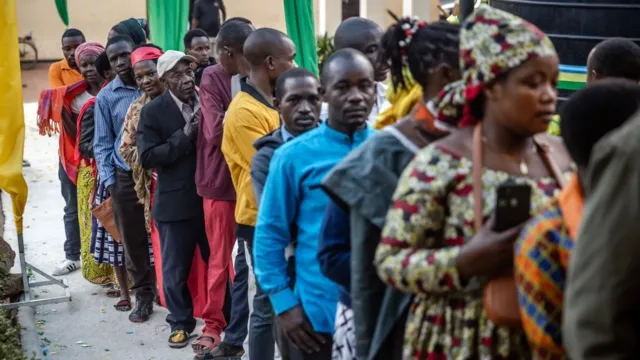In the heart of Africa, Rwanda has recently garnered praise from international election observers for its strides in democratic governance. The 2023 elections in Rwanda have been hailed as exemplary, setting a high standard for other African nations to follow. This praise isn’t merely about the procedural aspects of the elections but extends to the deeper implications for democracy across the continent.
Observers from various international bodies, including the African Union and regional organizations, have commended Rwanda for the smooth conduct of its elections. The processes were noted for their transparency, inclusivity, and adherence to international standards. This marks a significant departure from past criticisms of electoral irregularities in parts of Africa.
One key aspect that observers have highlighted is Rwanda’s commitment to nurturing its own democratic processes rather than replicating models from elsewhere. This approach underscores Rwanda’s determination to craft a democracy that is not only effective but also resonates deeply with its unique social, cultural, and historical context.
The concept of owning democracy is crucial in the African context, where historical and cultural factors shape governance structures profoundly. For decades, there has been a debate about the suitability of Western democratic models in African nations. Critics argue that blindly importing these models can lead to inefficacies and disconnects with local realities.
Rwanda’s approach challenges this narrative by emphasizing homegrown solutions to democratic governance. By adapting democratic principles to suit its specific needs and challenges, Rwanda has created a system that is more sustainable and responsive to its citizens’ aspirations.
The success of Rwanda’s recent elections offers several valuable lessons for other African nations aspiring to strengthen their democratic institutions:
Customization over Copying: Rather than adopting foreign democratic frameworks wholesale, countries should tailor governance structures to fit their unique socio-political landscapes.
Inclusivity and Transparency: Ensuring that elections are conducted with transparency and inclusivity builds trust among citizens and enhances the legitimacy of elected governments.
Investment in Institutions: Building robust institutions that oversee electoral processes and uphold democratic values is essential for the long-term stability and prosperity of nations.
Engaging Civil Society: Empowering civil society organizations and encouraging active citizen participation are crucial for holding governments accountable and fostering democratic growth.
As Rwanda continues to set an example in African democracy, the continent stands at a pivotal moment. The success of Rwanda’s elections should inspire other nations to reevaluate their approaches to governance and prioritize solutions that reflect their unique contexts. By owning their democracies, African nations can pave the way towards a future where democratic principles are not just imported but deeply rooted and sustained.
In conclusion, Rwanda’s recent electoral achievements serve as a beacon of hope for African democracy, demonstrating that with determination and innovation, nations can forge their paths to governance that truly serves the interests of their people. As other nations in Africa look to emulate Rwanda’s success, the continent as a whole moves closer to realizing a vision of democracy that is both authentic and effective.

